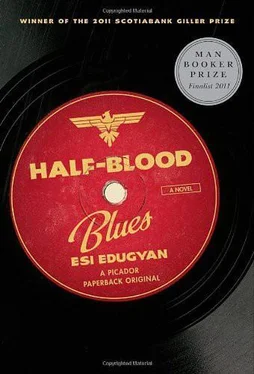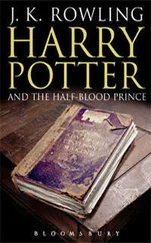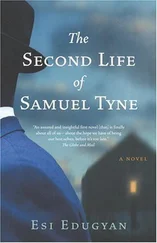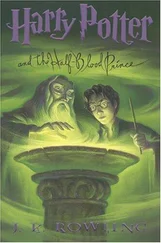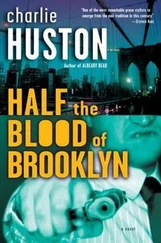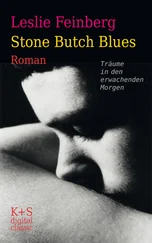The city buses vanished, near overnight. Everyone was talking bout parachutists, bout Kraut spies, the fifth column. Then the façade of Notre Dame was sandbagged, even while the book stalls on the quai stayed open. Was a damn strange time. We seen garbage trucks with mounted machine guns parked in the squares, steel girders set up near concrete blocks along the Champs-Élysées, in place de la Concorde. One day the Bug pried her old telephone off the wall with a shrug. From now on all public phone calls in Paris was banned.
And still we waited for some damn word.
Then, one sun-drenched morning, Delilah burst into the flat barefoot, holding her heels by the straps, panting.
I scrambled to my feet.
‘They’re through,’ she said in a fierce rush. ‘Our visas. They’re here .’
Time ain’t no steady thing. The speed it move at depend entirely upon the speed you moving at youself. It is a changeable thing, brother. And in those days we was all of us hurtling forward at a ferocious speed.
Delilah took me down to the Tuileries that afternoon, those vast public gardens drenched in June’s easy sweetness and coral light. Hell, it might’ve been any summer, any Sunday afternoon, the bees drifting drunkly from bloom to bloom, the trees fat with green. Delilah walked at a easy pace, her shoulders loose, her face looking smooth and untroubled, like I remembered it. She was wearing a thin cotton dress that snapped like a flag in the wind. I thought, hell, if no other days exist beyond this, so be it.
The grass was ragged in the Tuileries, like it ain’t been mowed in weeks. A policeman strolled by, a rifle slung over his shoulder, his helmet held half-hearted in one hand. Hell. And all at once I understood what felt so damn strange.
‘Where the kids?’ I said. ‘Ain’t no kids nowhere.’
Delilah shrugged. ‘You don’t read the papers? They got evacuated to the countryside. Weeks ago.’
Felt damn unreal. I eyed a jack reading the one-sheets near a ice-cream booth, looked uneasily at him. He got these huge thick hands, red and raw, like he work his whole damn life in a soap factory. Even from here I could see how he limped.
‘So you contact down here,’ I said, ‘what he look like?’
Delilah ain’t said nothing. Then she turned, give a little grunt. ‘That’s Simone.’ She gestured at a bench along the path. ‘Did you ever meet Simone?’
‘We ain’t got time for this, girl. What you doin?’
Simone was a tiny bespectacled jane, dressed in tweeds, her brown hair cropped bluntly at her cheeks, like she done cut it herself. She looked like a damn schoolteacher . She sat dour-faced on that scarred bench, watching us approach without even so much as a smile. There was a magazine rolled up in one of her hands. With the other she pulled birdseed out of a brown paper bag, showering it over the pigeons in the grass.
‘She look real friendly,’ I said. ‘A right chorus girl. How you know her?’
The pigeons cooed and parted as we come up, then closed in behind us. Delilah just sat right down next to that jane, saying something to her in Frog.
‘Speak in English,’ said the schoolteacher. Damn if her voice wasn’t lovely.
‘Sorry.’ Lilah blushed. ‘I forgot.’
The schoolteacher shrugged. ‘You will be travelling on your American passport. Keep your Canadian one very safe. It is always better to be a noncombatant in these matters.’
I stared at her in astonishment. I suddenly felt real nervous.
‘You are Sidney Griffiths?’ said the schoolteacher.
‘I sure as hell ain’t Chip Jones.’
She give me a look. Her spectacles was thick as wine bottles and her eyes ain’t seemed to focus right, her left staring hard off to one side of my head, her right looking the other. I glanced away. She handed her rolled-up magazine to Delilah. It was a old copy of Life . ‘Check each carefully. My people are good. But sometimes mistakes are made. You will remember to attach your birth certificates.’
The pigeons was swarming the long grass, pecking like mad.
Delilah opened to a clipped page and there was our papers. She stared at them like she didn’t believe what all she seeing. Slowly, her hands trembling, she begun thumbing through them. Delilah Natasha Fummerton Brown. Charles Chippewah Jones. Sidney Roscoe Griffiths. All typed and retyped in standard red ink. Our passports was fixed to each packet of papers. ‘Jesus,’ Delilah murmured. ‘Oh my god.’
‘Falk’s is not in there,’ the schoolteacher said flatly.
I give her a quick look. There was voices on the path, then two janes bicycled past in the sunlight. They ain’t glanced our way.
‘Where’s Hiero’s?’ I said.
She sighed, the edges of her mouth turning down. ‘His is a little more complicated, I am afraid.’
‘How much more complicated?’
She reached over, and closing the magazine, rolled it tight before arranging Delilah’s hands back over it. ‘Keep those safe,’ she said. ‘Complicated. It will take a bit longer. He needs an identity as well as visas. And passports are harder to come by. We have been working with some people on this though. It will happen.’
‘ Make it happen,’ I said. ‘It got to happen.’
‘It will.’ She turned those unsettling, unfocused eyes direct on me. I wasn’t sure where to look. ‘Keep him safe until we bring them to you. You are nervous. You should not be, we will find you.’
‘I guess we just got to trust you a little longer,’ I said, feeling a old bitterness in me.
‘Yes. You do.’
‘And we do ,’ Delilah said quickly. ‘We do, Simone. We’re just nervous.’
‘You must wait five minutes after I have left. Leave by the east entrance.’ The schoolteacher stood without another word, smoothed her long wool skirt, and turned her spectacled face to the sun. ‘Good day.’ Very casually, without looking at us, she walked away.
Delilah leaned over, give my shoulder a squeeze.
‘It’s starting,’ she whispered. ‘Sid? It’s really going to happen.’
But a strange sensation seemed to hover over everything in that garden. A sad feeling, maybe. I watched the sun-streaked heads of the young janes, strolling in their summer dresses through the heat. I stared across at the wrought iron tables on the patio, at the elderly jacks laughing there in Sunday shirtsleeves. It all seemed so slow, sad at that languid hour. Bitterness passed over me like a shadow of days half remembered. Hell. All of this, I known, was fated to ruin.
We come back up our street to catch old Chip leaning in a doorway across the way. Like he just getting some damn air.
‘What you doin, brother?’ I called.
He stood up straight, knocked the dust off his trousers, come over toward us. ‘Any luck? You get them?’
I slapped my jacket pocket. ‘Hand in glove, buck. Hand in glove.’
‘Well, well.’
‘Not Hiero’s though,’ said Delilah soft-like. She looked up at her windows and I followed her gaze up. The kid was standing, a dark figure, behind the far pane, his eyes on us. I shivered a little. I ain’t even felt him looking at us.
‘What’s he doing up there?’ said Delilah.
‘Ernst’s Horch been stolen,’ said Chip.
I couldn’t damn believe it. I turned round, glanced up the street. ‘But there ain’t even any damn gas. What the hell. They goin push it to Bordeaux?’
Delilah frowned, shaking her head. ‘We’ve got to get out of here, I mean it. In a week Paris will be a wasteland.’
‘Tell it to the kid,’ said Chip. ‘He the one holdin us up.’
‘It’s not his fault.’
‘No. But it his doin.’
She give him a dark look, crossed the street, gone inside. I stared up at the flat, but I couldn’t see the kid no more. Cupping a hand over my eyes, I looked round the street. Wasn’t no automobiles in sight, not a one. The buildings loomed hugely, deserted, dark.
Читать дальше
